Back in April, during National Poetry Month, I was getting ready to start a poetry unit with my 3rd grade students, and we inadvertently created the most wonderful poetry anchor chart ever! We like to call it our “Poet-Tree”! Here’s what happened…
I started out asking my 3rd graders, “What is Poetry?” to get some brainstorming going on. They started throwing out ideas and I quickly wrote them on the whiteboard. To help separate each thought, I’ve been known to draw little cloud-like bubbles around things, and when I did that, one of my students shouted out, “Hey! That kinda looks like a tree!” So I said, “Huh..okay, let’s go with this!” and I proceeded to draw a tree trunk underneath the “bubbles”.
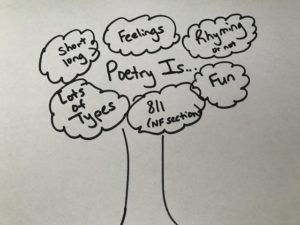
Later that night, that idea just kept churning around in my head (you know how that goes!) and eventually at 3 am I had to get up and draw out my thoughts! Boy am I glad that I did! In my mind, the trunk of the tree could represent the foundational poetry skills that all grade levels needed to know…the basics. The branches could hold signs with additional concepts (like figurative languages skills) that often go hand in hand with poetry. BRILLIANT!! (…or at least it seemed so at 3 am!)
The next day, I couldn’t wait to get started creating this! Here’s the poetry anchor chart that I made originally with kinder and 1st grade
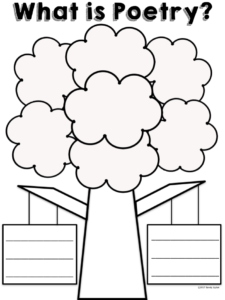
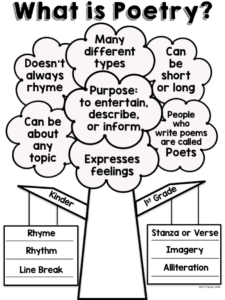
When I looked at the concepts 2nd and 3rd needed to learn, I realized I needed to make some changes in order to get all the words on the tree. I moved the kinder and 1st grade words to the tree trunk, which left the signs empty for new vocabulary words. I had to add a fourth line to each sign though to get them all in!
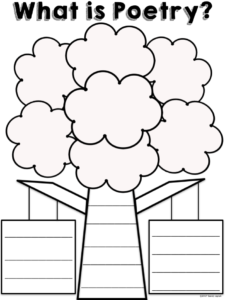
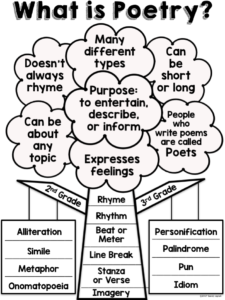
By the time I got to 4th and 5th grade, I realized I needed to change things up a bit more in order to get everything in. So I combined Simile and Metaphor onto one line.
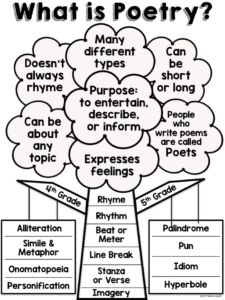
I thought this would make a good note-taking device as well, so I created modified versions of the poster to hand out to students (which also gave them something to take back to their classroom or home).
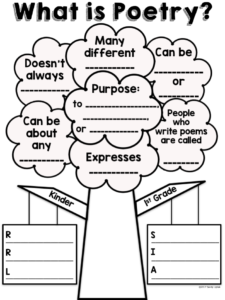
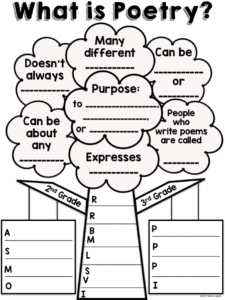
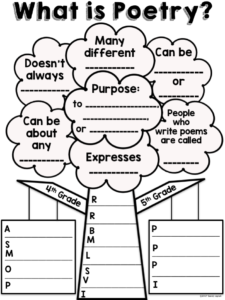
I used these anchor charts with my kids this past year, and it worked great as an introduction and review tool! I ran out of time to finish it, and have spent this summer adding in some additional activities I thought would be fun to do. The first thing I created was two word searches (for 2nd-3rd and 4th-5th).
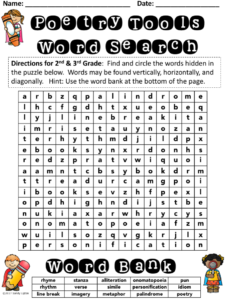
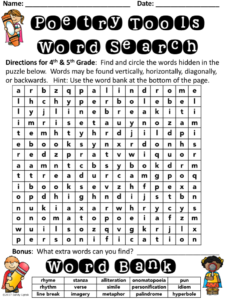
I also created a Vocabulary & Definition matching game that kids could do in partners or small groups as a review.
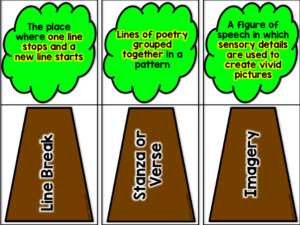
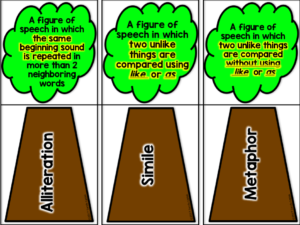
I also took the blank anchor charts and made 24×36 in posters and glued them back to back and then laminated it. This way I could turn the poster over for either K-1 or 2nd-5th grade. I created word cards that I could attach to the anchor chart using Stikki Clips as we talked about each concept.
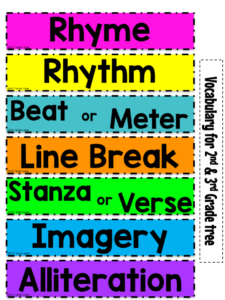
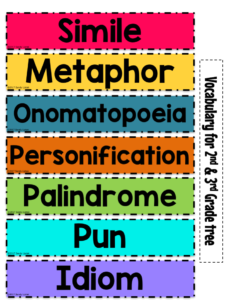
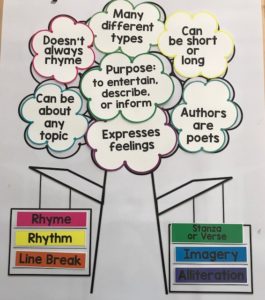
I’m so excited to have created a poetry anchor chart that can “grow” with my students each year while reviewing poetry concepts and vocabulary! If you’d like to try this out with your kids, you can find it on my website or at my TpT store. You can also read another blog post I wrote about poetry here.
My plan now is to create some fun Poetry Stations to go along with the concepts on the anchor chart to have a week long Poetry Celebration with all students! What fun ways do you teach and review Poetry with your kids?














I do some of the things that you do, but I really like your ideas.
Thank you for sharing this great resource
I do some activities that are similar, but I would like to see anchor charts for ballads, sonnets, open form, different types of poetry, 6th grade. I think it’s great!